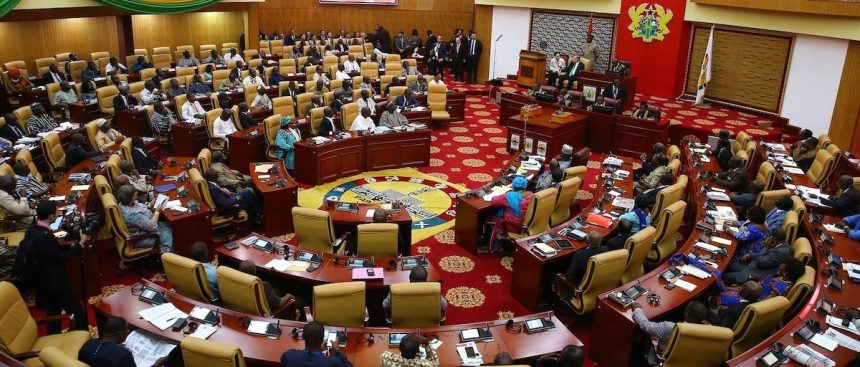Government says it has uncovered a massive import-fraud scheme that enabled importers, banks and intermediaries to move an estimated US $31 billion out of the country over a five-year period without bringing in any goods. The revelation was made by Finance Minister Cassiel Ato Forson during the presentation of the 2026 Budget, where he described the abuse as one of the most damaging drains on Ghana’s foreign exchange reserves in recent years.
According to the minister, the suspected illicit outflows occurred between April 2020 and March or August 2025. Over that period, more than half a million import-related transactions were recorded in the customs and trade-monitoring system, but only a small fraction of those transactions resulted in actual goods arriving at Ghana’s ports. Forson told Parliament that the difference—amounting to roughly US $31 billion—represents transactions in which money left Ghana supposedly to pay for imports that never materialised. “This leak has bled our reserves, weakened the Ghanaian cedi, and deprived the economy of resources that should have built schools, roads and hospitals,” he said.
Government officials say the scheme relied on systematic abuse of import declaration forms meant to certify legitimate trade. In many cases, funds were transferred abroad under the pretext of financing imports, but no goods were shipped back to Ghana. In other cases, importers deliberately under-declared the value of goods to avoid paying duties, hiding tens of billions of cedis’ worth of imports from the Ghana Revenue Authority. The ministry also found instances in which banks approved transfers far above the foreign-exchange limits set by the Bank of Ghana, amounting to billions of dollars in unverified outflows. Officials describe a network of importers, clearing agents and financial intermediaries who allegedly used falsified invoices and misclassified declarations to disguise capital flight.
The Finance Minister said government will launch an aggressive recovery effort. The Ghana Revenue Authority is setting up a special recovery unit to trace the illicit flows and recover unpaid taxes. Banks implicated in the transfers face sanctions from the Bank of Ghana, and cases involving importers and financial operatives are being referred to state investigative bodies for possible prosecution. The government has also created an inter-agency committee that will audit all import-related foreign-exchange transfers going forward, requiring every payment to be matched with proof of actual goods arriving in the country.
Dr. Forson characterised the situation as an “organised crime” that has undermined Ghana’s economic stability. He linked the outflows to the persistent pressure on the Ghanaian cedi and the country’s struggle to maintain adequate foreign-exchange reserves. The minister told Parliament that the uncovering of the scheme is part of a broader effort to clean up the trade system, close loopholes and restore credibility to Ghana’s financial management. “We have done the work and seen the problem clearly,” he said. “Now we will go for what is owed to the state.”
Economists say the scale of the leakage is alarming for a country that relies heavily on foreign exchange to pay for fuel, food and industrial inputs. Many believe the government’s response will be closely watched by international lenders and investors, especially as Ghana seeks to consolidate its recovery. Analysts caution, however, that the real test will be enforcement. Announcing audits and sanctions is one thing; ensuring that offenders are prosecuted, funds are recovered and the system is reformed is another.
For now, the government says it will publish the full audit of the transactions and pursue all parties involved in the alleged laundering scheme. Officials also say they intend to revisit earlier years to determine whether similar patterns existed before 2020. The Finance Minister appealed to citizens to play their part by paying taxes honestly and called on Parliament to support the reforms needed to strengthen oversight. The expectation from government is that the exposure of the scheme will serve as a turning point in tightening Ghana’s trade and financial systems.






